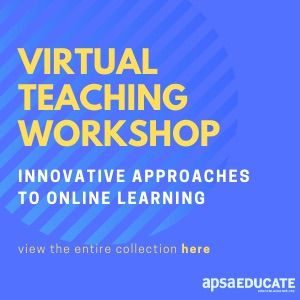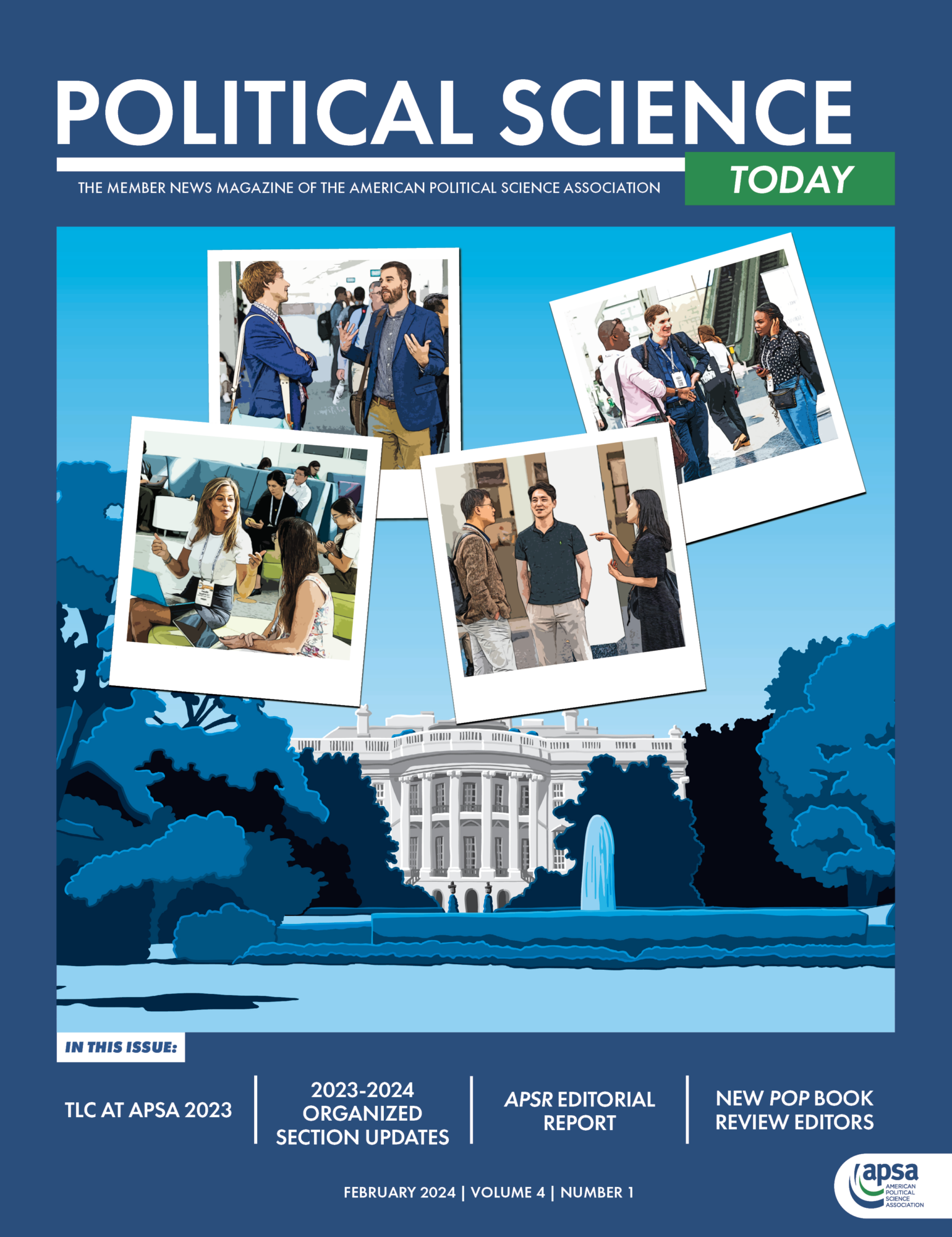Veronica Reyna, Professor & Associate Chair of the Department of Government, Houston Community College
Not me. Not in my course. I protest, sign petitions, and even teach about injustice! Sound familiar? Many of us would never believe that we could unknowingly participate in that horrid phrase “institutional discrimination,” but how many of us have thought about how institutional discrimination occurs in the day-to-day details on our campuses? Often institutional  discrimination occurs without discriminatory intent in course design. It’s in our mindsets about proper learning, educational standards, and assumptions about this generation. It’s in the unquestioned ways about how we learned that we continue because ‘that’s just how a college course is done.’ We were educated and socialized by, and now educate and socialize in, institutions with checkered pasts (and equally questionable presents). Here’s a quick check: write down all the complaints you’ve ever levied about students. Now reverse engineer them. What are other possible explanations for these behaviors beyond the classic “students these days?”
discrimination occurs without discriminatory intent in course design. It’s in our mindsets about proper learning, educational standards, and assumptions about this generation. It’s in the unquestioned ways about how we learned that we continue because ‘that’s just how a college course is done.’ We were educated and socialized by, and now educate and socialize in, institutions with checkered pasts (and equally questionable presents). Here’s a quick check: write down all the complaints you’ve ever levied about students. Now reverse engineer them. What are other possible explanations for these behaviors beyond the classic “students these days?”
How can faculty teach with social justice and not just about social justice? How we choose to make our courses can either enable success for all students, or it can systematically privilege success for some students and perpetuate obstacles for others. These obstacles are course-level detail and where institutional bias occurs, too. And we all have obstacles in our courses. There’s always work for us to do, even if many educators are mindful of not perpetuating obstacles they experienced in college. As we grumble while creating our online courses for the next semester, let us also see the opportunity in creating these courses without biased assumptions that play a role in perpetuating institutional discrimination. A tool we can use to put justice into action is the Social Justice Checklist for Online Course Design, developed this summer for the APSA Virtual Teaching Workshop: Innovative Approaches to Online Teaching.
The Purpose of the Checklist
The Social Justice Checklist provides an operationalized list of course features we know create equity, justice and support all students. The checklist’s purpose is not to educate about the research or theories on how course design and educators perpetuate discrimination (though I encourage you to seek out resources). The checklist is designed for quickly transitioning courses online given COVID-19; it can also be used to tweak already-existing online courses. The checklist just tells you what to do for triage purposes; the ‘why’ you can learn about when you have more time.
The course features listed start with the minimum expectations for ADA accommodations and other course accessibility standards. The next level of features draws from research found in books like Bandwidth Recovery: Helping Students Reclaim Cognitive Resources Lost to Poverty, Racism, and Social Marginalization (2017) by Cia Verschelden. Many High Impact Practices (HIPs) or best practices of online pedagogy work in part because they empower all students to learn with fewer obstacles. The other resources created in the APSA Online Teaching Innovation Workshop provide ideas for carrying out these best practices, too.
How to Use the Checklist
The Social Justice Checklist has three tabs at the bottom of the sheet: Access to Technology and Materials; Restoring Cognitive Bandwidth; and, Online Learning Student Mentoring. These tabs represent areas in online courses where access to justice issues occur, and each tab details when they occur in course design. On each sheet, there is a Status column with a drop-down menu to track when a course feature is checked and added to a course, or when adding a feature is postponed. The More Information column directs you to resources that help carry out that specific course feature.
Start with a review of the minimum standards for accessibility. For students with diversabilities, online courses provide new obstacles that were once controlled in on-campus instruction. Already-existing economic, social, and health disparities have been heightened by the pandemic, so using a broader definition of course accessibility is necessary. Next, work toward mindfulness about course features which help restore cognitive bandwidth. Do assignments prevent extra economic hardship because they consider data usage or limited access to the internet? Does assignment content or wording, or other elements of the course, prevent triggering stereotype threat or imposter syndrome? The course features listed in the second tier of each tab help to address questions like these.
Occasionally return to the checklist; the resource will be expanded and improved. The checklist is a start, and by no means is exhaustive; there will be student experiences that differ across types of colleges and universities, too, as well as across regions of the United States. Suggestions are welcomed to help make the checklist more inclusive.
 Verónica L. Reyna (B.A. Political Science and Women’s Studies, Northwestern
Verónica L. Reyna (B.A. Political Science and Women’s Studies, Northwestern
University; Ph.D. Political Science, University of Michigan)
Dr. Reyna is Associate Chair of the Department of Government at Houston
Community College. She teaches Intro. to American Government and Texas
Government, as well as Mexican American/Latinx Politics. Besides teaching, Dr.
Reyna’s research and community partnerships work toward community
empowerment through youth political mobilization. Dr. Reyna started the Center
for Civic Engagement in 2017 to empower Houston Community College students
and surrounding communities to use their political power to create change on their
own terms. Through voter registration and mobilization drives, National Issues
Forum discussions, Skills for Democracy workshops, and the Run Different
Campaign Academy, the Center for Civic Engagement educates about how to be fully
involved in creating a thriving and diverse democracy. Dr. Reyna has been
nominated for teaching awards and is a 2019 NISOD Excellence Award recipient.





